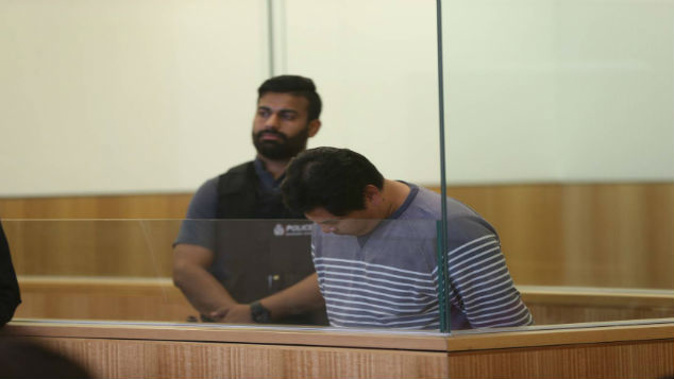
Nearly 200 illegal Malaysian workers were deported - or stopped at the border - following a six month investigation into Auckland's construction industry.
Operation Spectrum also uncovered a weakness in border security where 15 people previously deported or fled from New Zealand, were able to return under new identities.
Many of these immigration fraudsters registered companies in New Zealand, then recruited other unlawful workers as plasterers, painters, tilers or carpenters. They worked as third-tier subcontractors, below the radar of developers and site managers.
• Inside Auckland's con-struction job
• The dark underbelly of human trafficking in NZ
There was little evidence of workers living in poor conditions, or being exploited against their will. Most were paid just $20 to $40 an hour in cash - paying no tax - so those running the underground crews were able to win contracts by undercutting the prices of legitimate competitors.
"It was common to hear 'we got paid every Thursday by a man in a black Audi'," said Alistair Murray, who manages investigations and compliance for Immigration New Zealand.
"We are talking significant cash flow, hundreds of thousands of dollars.
READ MORE: Tradies say NZ's skills shortage lead to illegal immigrants
"So Kiwis are being cut out of jobs. Legitimate Kiwi businesses trying to contract in that market, can't compete with those rates. It's not a level playing field."
Immigration New Zealand investigators drew a target list of 10 companies to disrupt the flow of illegal workers from Malaysia, who were responding to advertisements on social media.
Staff raided construction sites around Auckland and detained and deported 54 people.
On one occasion, at least 20 illegal workers fled and scattered through the streets of Mt Wellington.
"They just scarpered, disappeared when we turned up," said Murray.
"Even on the most simple of sites, it was a massive exercise to do a floor-by-floor sweep with two people blocking each exit. We'd find people hiding in fire exits, stairwells, ceiling cavities.
"Or sometimes they were in the middle of plastering a wall and we'd tap them on the shoulder to say: 'You've been here unlawfully for 10 years, time to go home'."
Another 36 people fled the country before they were caught, while 15 who had visas to live in New Zealand - but not to work - were served with deportation liability notices.
On average, those 105 people had each lived here unlawfully for 5 years.
One had been here for two decades.
"They're living here, enjoying the benefits of New Zealand," said Murray.
"Cutting legitimate businesses out of work. And not one of them paying tax."
Another 85 would-be illegal workers were stopped at the New Zealand border, or sometimes before they even stepped foot on the plane to carry them here.
In total, 190 people were stopped over the course of a six-month period.
Out of those, Operation Spectrum uncovered 15 who had previously been deported, or fled New Zealand before they were caught, but returned under a new identity.
"The ability of someone to be deported, change identity, and be back quickly is a concern," said Murray.
"Because we don't know who is here."
Just two went on to obtain permanent residency; the rest were deported again.
Murray said improved collection of biometric data, such as fingerprints, facial recognition software and database checks by Immigration NZ staff means more dual identities are much more likely to be picked up.
One of the pair who obtained permanent residency under his new identity has now pleaded guilty to immigration fraud.
Adam Gan Bin Abdullah, 39, appeared in the Manukau District Court this week where he narrowly avoided going to prison.
Abdullah, a builder by trade, was deported from New Zealand in 2012 under his previous name of Meng Kuang Gan.
He changed his name in Malaysia after marrying a Muslim woman, as is the custom, and returned to New Zealand the following year.
Abdullah repeatedly failed to declare his previous name or deportation, eventually obtaining permanent residency here until being caught in Operation Spectrum.
This is likely to be revoked and led to a second deportation, his lawyer Michael Kan told the court.
By a "fine margin", Judge John Bergseng agreed with Kan's submissions that Abdullah should be sentenced to home detention.
He will serve 10 months at an address in Flat Bush.
"Truthful declarations are the cornerstone of the New Zealand immigration system. Your offending directly challenged this," said Judge Bergseng.
"You had a deliberate plan to deceive. This was clearly premeditated, fraudulent and repeated. Having been successful once, you thought you'd get away with it again."
Take your Radio, Podcasts and Music with you









